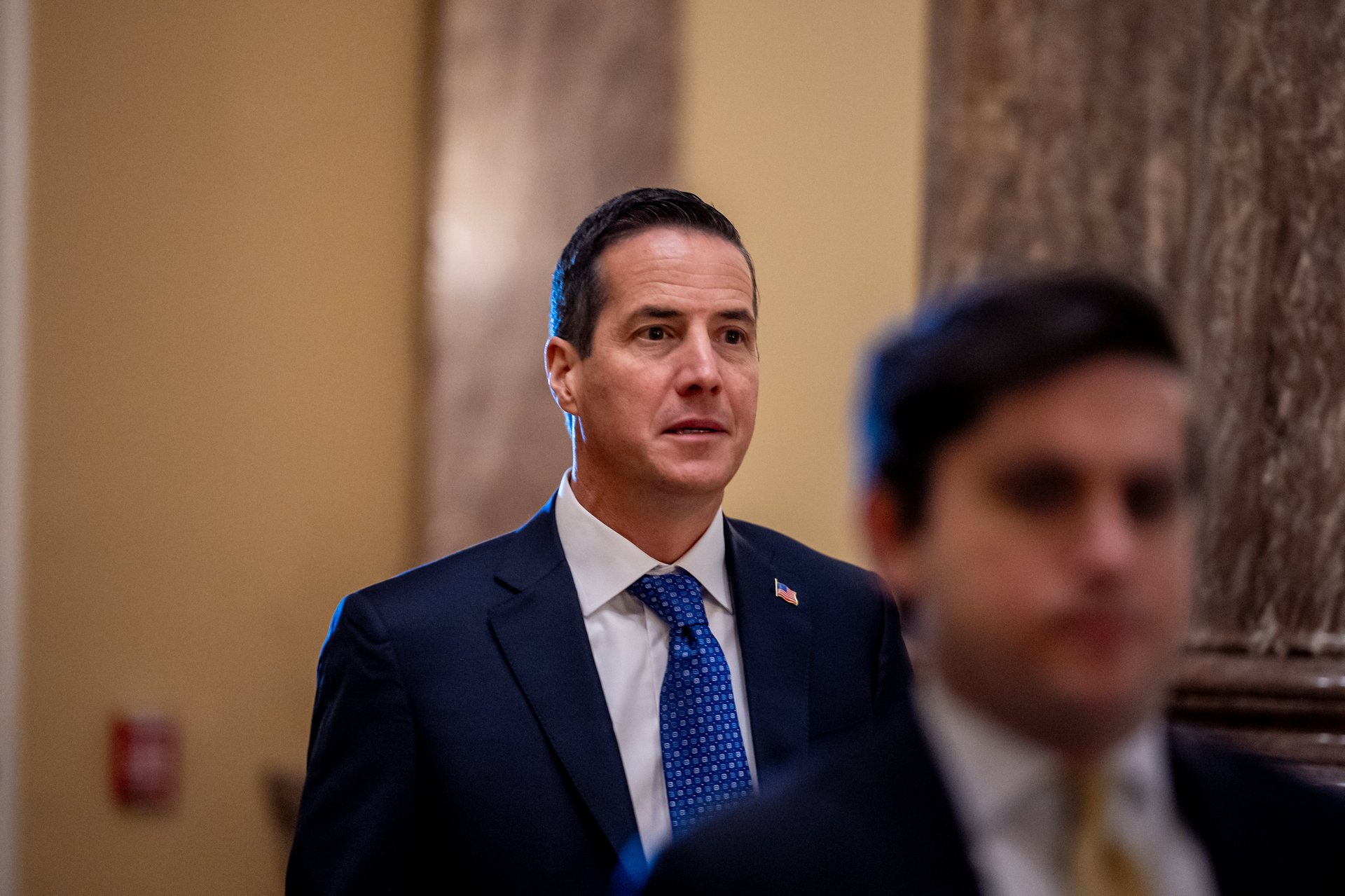A former car dealer and incoming senator slams EV tax credits as 'catastrophically stupid'
Bernie Moreno of Ohio is angling to become the next president's "car czar" and scrap the credits

Ohio’s next senator isn’t pulling his punches when it comes to government support for electric vehicles.
Suggested Reading
Bernie Moreno, a Republican heading to Congress to replace Democratic Sen. Sherrod Brown, wants to become the “car czar” of President-elect Donald Trump’s administration, he said Wednesday at a CNBC conference in Washington, D.C. One of his first targets is the $7,500 tax credit for EV purchases and leases, which have been a major driver of sales.
Related Content
“At the end of the day, the $7,500 incentive is catastrophically stupid,” Moreno said at the conference, adding that the government shouldn’t “tell companies what to do and how to have a strategy.”
The tax credit, along with other incentives and benefits included in President Joe Biden’s Inflation Reduction Act, have helped automakers lower prices and increase their investments in EV-related technology and production at a time when most businesses have yet to turn a profit.
Ford Motor Co. (F) took a $1.22 billion loss in its EV division last quarter, which it partly aims to lower by shifting some production back to the U.S. so its vehicles can qualify for the tax credit. Hyundai Motor Co. (HYMTF) accelerated its plans to build a new factory in Georgia to take advantage of the tax credits.
The Alliance for Automotive Innovation, an industry trade association, asked Congress to keep the EV tax credits in October, calling them “critical to cementing the U.S. as a global leader,” while Democratic officials have said they help U.S. companies compete with China.
Moreno disagreed, saying Wednesday that if China is “dramatically ahead of us on EVs,” it’s “good for them,” adding that the U.S. is beating them where gas-powered vehicles and hybrids are concerned.
“So as a country, where do you prefer our industry to go? The places where we have a strategic advantage and not hand an industry over to China?” Moreno said, adding that changing EV incentives is a reflection that “consumers have spoken.”
Several Republicans, including Trump, ran on a promise to scrap Biden’s pro-EV rules that encourage automakers to focus on that technology. That includes rules on tailpipe emissions that opponents have labeled a “mandate” because they encourage EV sales.
“There’s never been a case in time where consumers have been more clear about what they want and don’t want,” Moreno said, adding that “a lot of people” don’t want EVs.
Although consumers are still buying more EVs than in previous years, the rate of that growth is winding down. The U.S. is set to see EV sales grow by around 20% this year, or about 500,000 additional units, well below the blockbuster 40% growth of 2023, according to the International Energy Agency.
In the face of that, many automakers have pulled back or delayed investments in order to lower costs and develop more profitable vehicles. Several automakers, including Ford, see a major benefit from investing heavily in new hybrid vehicles and plan to keep both them and traditional gas-powered cars as part of their sales mix for the next several years.
Chinese automakers, despite Moreno’s words, are making similar moves, primarily to dodge new European tariffs on EV imports, Reuters reports.
Hybrid vehicle exports made up 18% of China’s total to Europe last quarter, compared to 9% in the first quarter of 2024. Several companies, including Geely (GELYF) and BYD (BYDDY), have developed new hybrid cars, with Tesla-rival Xpeng (XPEV) planning to launch its first hybrid in early 2025. Chinese carmakers are also still selling a lot of gas guzzlers, especially abroad in countries where EVs aren’t popular yet.